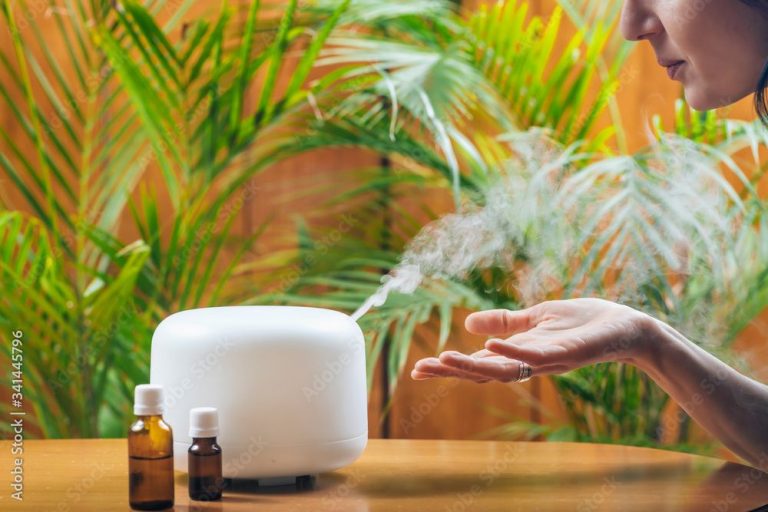Can You Put Pure Citronella Oil On Your Skin?
What is Citronella Oil?
Citronella oil is an essential oil derived from the leaves and stems of different species of Cymbopogon plants, commonly known as lemongrasses (Wikipedia). The main chemical components of citronella oil include citronellal, citronellol, and geraniol (Merriam-Webster).
To produce citronella oil, the grass is cut and partially dried, then subject to steam distillation. This process extracts the aromatic compounds from the plant material, producing the essential oil (NPIC).
Besides its use as an insect repellent, citronella oil also has applications as a fragrance in soaps, candles, and cosmetics. It has a distinctive lemony scent. The oil may also be used for aromatherapy due to its purported calming effects
Safety Concerns with Citronella Oil
While citronella oil is considered safe for topical use by most people, there are some potential safety concerns to be aware of:
Skin Irritation: Citronella oil can cause skin irritations, redness, rashes or allergic reactions in some individuals, especially those with sensitive skin (1). It’s best to do a patch test before widespread use. Diluting with a carrier oil may also help prevent irritation.
Phototoxicity: Citronella oil contains compounds like geraniol and citronellol that can make skin more sensitive to UV rays, increasing the risk of sunburn (2). Avoid sun exposure for 12-24 hours after applying citronella oil.
Ingestion: Swallowing citronella oil is unsafe and can cause side effects like nausea, vomiting, liver damage or aspiration pneumonia if inhaled into the lungs (3). Always keep essential oils out of reach of children.
While most evidence shows citronella oil is safe when used properly on intact skin, caution is warranted for children, pregnant women, and individuals with sensitivities. Never ingest citronella oil.
(1) https://www.healthline.com/health/citronella-oil
(2) https://www.webmd.com/vitamins/ai/ingredientmono-627/citronella-oil
(3) https://www.aosproduct.com/blog/Essential-Oils/How-to-Use-Citronella-Oil
Using Citronella Oil on Skin
Citronella oil is commonly used as an insect repellent, especially against mosquitoes. While citronella oil is considered safe for topical use when properly diluted, it’s important to follow usage guidelines to avoid skin irritation.
According to the National Association for Holistic Aromatherapy (NAHA), citronella oil should always be diluted before applying to skin. The NAHA recommends using a 1 to 2.5 percent dilution for normal skin, which is about 6 to 15 drops of citronella oil per ounce of carrier oil or lotion. Some common carrier oils to use include olive oil, coconut oil, jojoba oil or unscented moisturizer. (1)
When applying diluted citronella oil, it’s best to use it sparingly on exposed skin such as the face, neck, arms and legs. Avoid sensitive areas like the eyes, nostrils and lips. Citronella oil is not recommended for use on infants or young children. (2)
In terms of reapplication, citronella oil typically lasts about 1-2 hours before needing to be reapplied. Oils with higher concentrations of citronella may last slightly longer. It’s a good idea to reapply diluted citronella oil every 1-2 hours for continued insect repellent benefits.
Citronella Oil vs. DEET
When it comes to repelling mosquitoes and other biting insects, DEET and citronella oil take different approaches. DEET is a synthetic chemical that masks the cues that attract mosquitoes, while citronella oil is a plant-derived essential oil that acts as a repellent. Research has found DEET to be significantly more effective at repelling mosquitoes than citronella oil.
In a 2015 study, DEET provided complete mosquito protection for 6 hours, while citronella oil only worked for 10.5 minutes. The scent of citronella oil dissipates quickly, requiring frequent reapplication for continued effectiveness. DEET provides longer protection between applications.
Safety is also a consideration. DEET can cause skin irritation in some people, especially in higher concentrations. Citronella oil is generally recognized as safe by the FDA, but rare skin sensitivities can occur. Neither should be used on infants younger than 2 months old.
Overall, DEET remains the gold standard for repelling mosquitoes and other insects. While citronella oil provides a plant-based alternative, it requires very frequent reapplication to come close to the effectiveness of DEET-based repellents.
Other Plant-Based Insect Repellents
In addition to citronella, there are several other plant-based oils that can act as natural insect repellents. Some popular options include:
- Lemon eucalyptus oil – Derived from the lemon eucalyptus tree, this essential oil has been shown to effectively repel mosquitoes.
- Lavender oil – Studies suggest lavender oil can deter mosquitoes and ticks when applied to the skin or clothing.
- Peppermint oil – The strong aroma of peppermint may help repel insects like mosquitoes and biting flies.
- Tea tree oil – This versatile essential oil may provide some protection against mosquitoes though research is limited.
A key advantage of these plant-based oils over citronella is that many can be safely applied directly to skin, unlike undiluted citronella. However, they may need to be reapplied more frequently than chemical repellents. Overall, lemon eucalyptus appears to offer the best and longest-lasting repellency compared to other plant-based options.

Using Citronella Candles and Sprays
Citronella candles and sprays are commonly used as natural mosquito repellents. The key active ingredient in these products is citronella essential oil, which is extracted from the Java citronella plant (Cymbopogon winterianus). Citronella oil has a strong, lemon-like scent that is believed to help mask human odors that attract mosquitoes.
While citronella candles and sprays seem like an attractive natural option for warding off mosquitoes, scientific research has found them to be minimally effective at best. One study published in the Journal of the American Mosquito Control Association tested citronella candles against unscented candles and found they provided only marginal protection – reducing mosquito landings by an average of 42% compared to unscented candles [1]. Other research has confirmed their limited usefulness, concluding that citronella candles should not be relied upon as a primary mosquito deterrent [2].
There are several factors that limit the efficacy of citronella candles and sprays:
- Citronella oil evaporates and dilutes quickly into the air, requiring high concentrations to be continually emitted for repellent effects.
- Weather conditions like wind can disperse the citronella scent before it has a chance to work.
- Mosquitoes can become desensitized to citronella after prolonged exposure.
- Citronella-based products mainly work as spatial repellents across a limited area rather than on the skin surface.
While citronella candles and sprays have some repellent qualities, especially when used correctly, they should not replace DEET or other proven topical repellents when significant mosquito protection is needed. At best, they can provide a complementary barrier to bites when used carefully alongside other precautions.
[1] https://academic.oup.com/jme/article/52/3/417/860092
[2] https://www.science.org/content/article/want-repel-mosquitoes-don-t-use-citronella-candles
Non-Chemical Precautions
In addition to chemical repellents, there are other ways to help avoid mosquito bites without putting chemicals directly on your skin:
- Wear loose, long-sleeved shirts and long pants when going outside, especially at peak mosquito hours like dawn and dusk.
- Use mosquito netting over beds, strollers, and playpens to create a barrier at night.
- Make sure window and door screens are installed properly without any gaps or holes.
- Avoid heavily wooded, boggy, or marshy areas which tend to have more mosquitoes.
- Eliminate any standing water around your home where mosquitoes can breed.
- Use electric fans at outdoor gatherings to help deter mosquitoes.
- Burn citronella candles or torches outdoors to repel mosquitoes from an area.
- Grow plants like lavender, basil, marigolds, and garlic which are natural mosquito repellents.
Taking preventative measures with clothing and avoiding peak activity times and habitats can significantly reduce mosquito bites without the need for repellents. However, in areas with heavy infestations, combining these tips with topical repellents provides the best protection.
Who Should Avoid Citronella Oil
While citronella oil is generally considered safe for most people when diluted and used properly, there are certain groups who should exercise caution or avoid using it altogether:
Pregnant Women: There is not enough research on the safety of citronella oil for pregnant women. Since pregnancy causes skin sensitivity, it’s best for expecting mothers to avoid applying citronella oil to their skin.
Children: Citronella oil can be poisonous if ingested by children. Topical application is also not recommended for kids due to potential skin irritation. Parents should take care to store citronella oil safely out of reach of children.
Those with Skin Sensitivities: People with eczema, rashes or other skin conditions should either avoid using citronella oil or first do a patch test on a small area of skin. Due to its potency, citronella oil can cause skin irritation in those with sensitive skin.
In addition to the groups above, it’s generally advised that citronella oil not be used undiluted or ingested. Proper dilution and storage are important safety measures when using this essential oil.
Myths and Misconceptions
Despite its popularity, there are some common myths and misconceptions about using citronella oil as an insect repellent.
One myth is that citronella oil is as effective at repelling mosquitoes as DEET. However, research shows that oil of citronella provides only short term protection, up to about 2 hours, while DEET can protect for several hours longer (1). Citronella oil also does not work against all types of mosquitoes.
Another myth is that citronella oil is completely safe for everyone to use directly on the skin. In reality, undiluted citronella oil can cause skin irritation, especially for people with sensitive skin (2). It’s important to dilute citronella oil properly before applying it to skin.
There is also a misconception that burning citronella candles or torches can repel mosquitoes from an entire backyard space. Studies found citronella candles do not repel mosquitoes beyond a small 5 feet radius around the candle (3). It does not replace full protective sprays or repellents on your skin.
While citronella oil has some repellent properties, it does not provide the same strong and lasting protection as EPA registered chemical repellents like DEET. But it can still be useful as part of an overall mosquito protection strategy when used properly.
(1) https://www.southernliving.com/garden/pests/does-citronella-repel-mosquitoes
(2) http://npic.orst.edu/factsheets/citronellagen.html
(3) https://villagewaxmelts.com/blogs/news/citronella-essential-oil-history-uses-and-benefits
The Bottom Line
In summary, pure citronella oil can be safely applied to skin if diluted properly, but only for short periods of time. When used as an insect repellent, it should be combined with a carrier oil and applied sparingly. While citronella oil is generally non-toxic, some people may experience skin irritation or allergic reactions. It’s important to do a patch test first. Pregnant women, infants, and young children should avoid using citronella oil on skin due to increased absorption and sensitivity. While citronella candles, sprays, and products can help repel insects, pure oils should only be used externally with caution.
The key guidance is to always dilute pure citronella oil and use sparingly on skin. Avoid prolonged exposure. Test for skin sensitivity before wider application. Consider alternative natural repellents for babies and children. Citronella candles and sprays can be effective non-topical options. Implement other protective measures too. When in doubt, consult your doctor before using citronella oil, especially if pregnant or breastfeeding.




